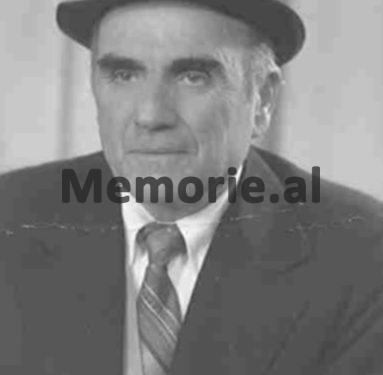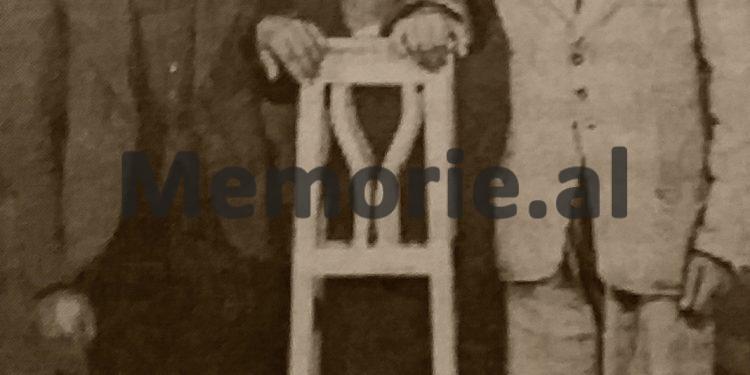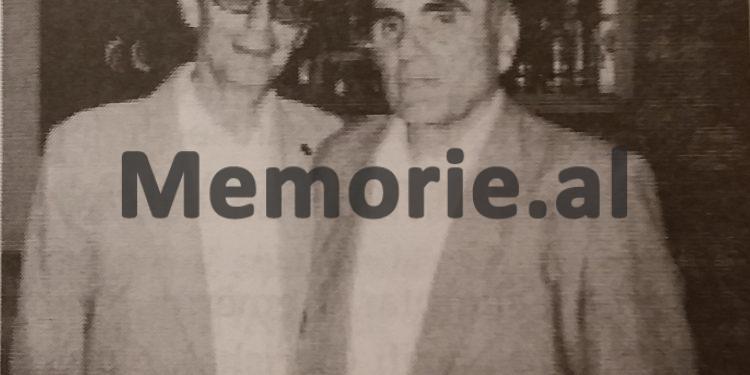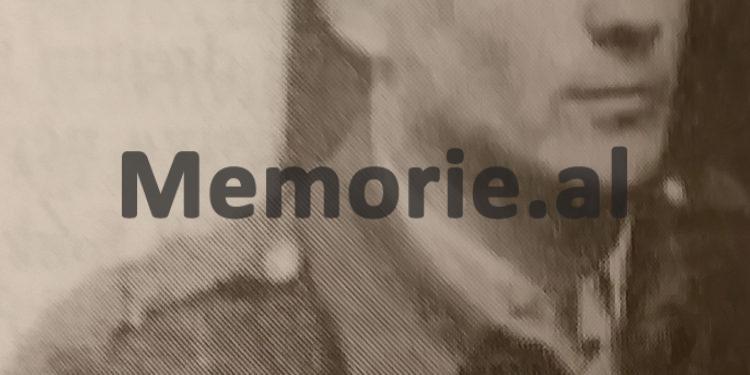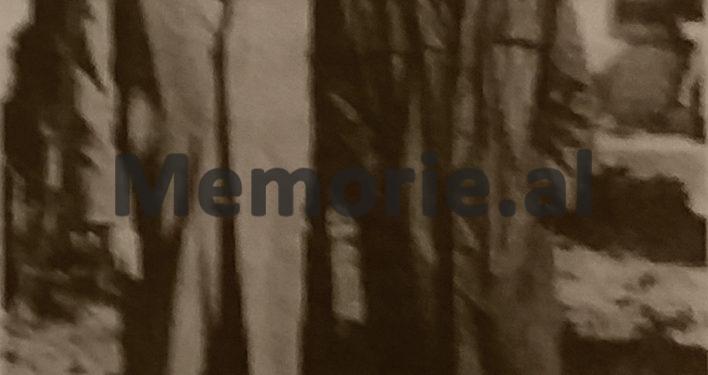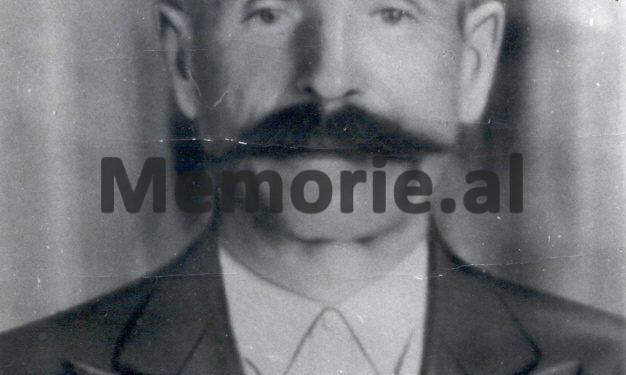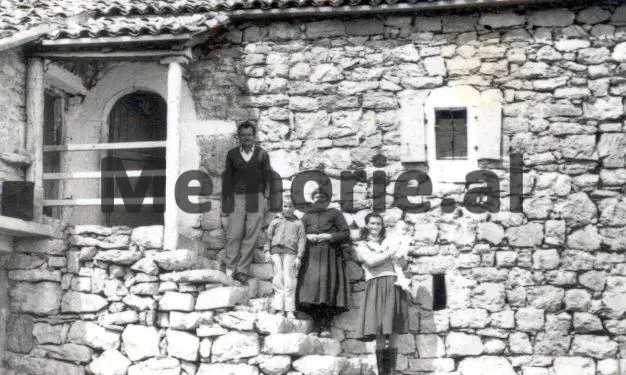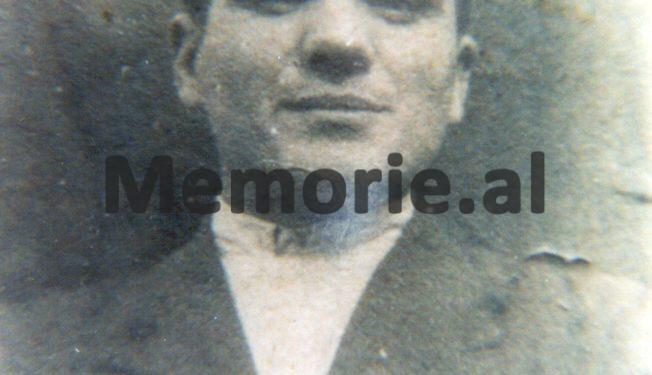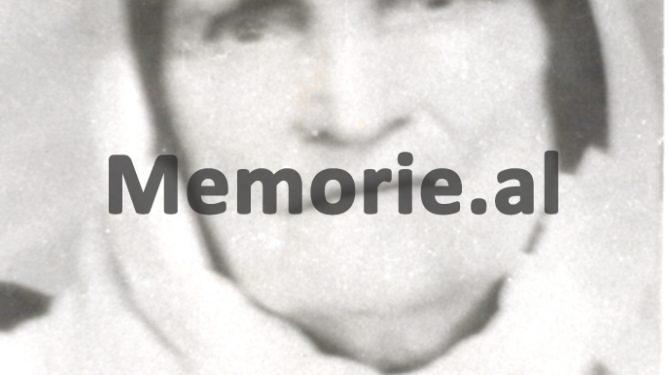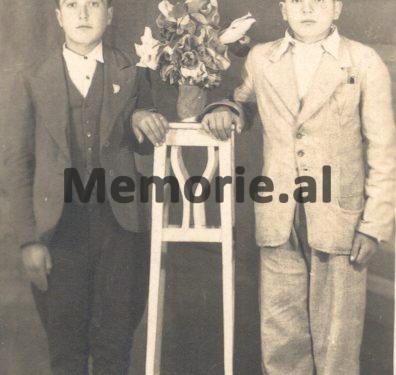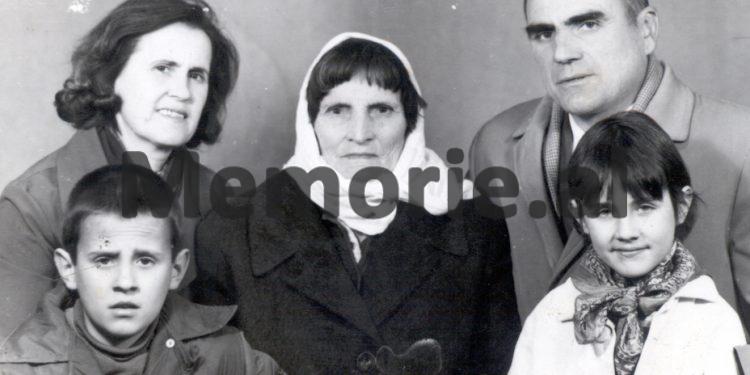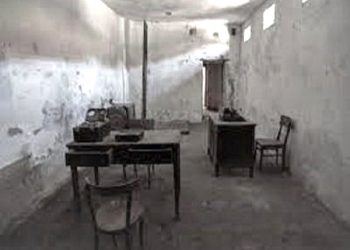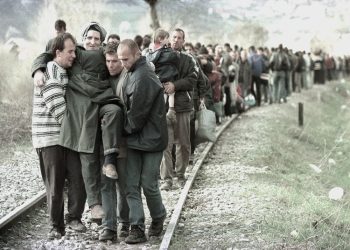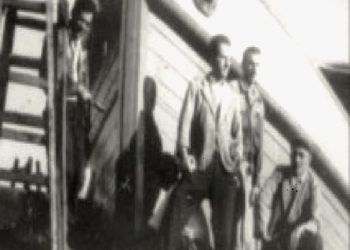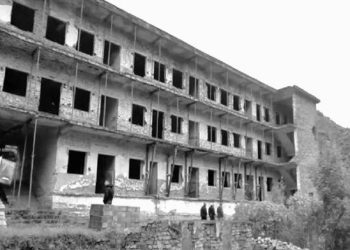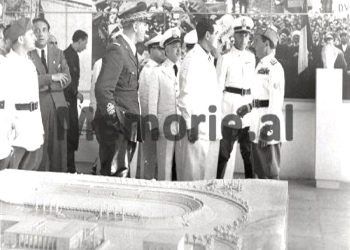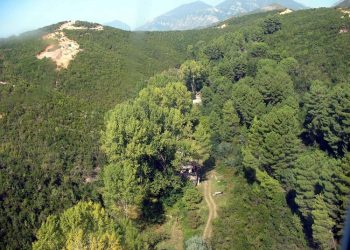By Zef Dod Gjeloshaj
Memorie.al publishes the unknown story of the Gjeloshi family from Triesi, Montenegro, through the rare testimonies of Zef Dod Gjeloshaj, one of her suckers, who in January 1950, after the conflicts his family had with the Tito regime , where some of their sons were killed, as well as the event when the Gjeloshi family fought for several hours against the Serbo-Montenegrin military forces, after refusing to hand over a Serbian officer (grandson of Djoko Mirasevic, “Hero of the Peoples of Yugoslavia” who has two busts in Montenegro), who had asked for their trust, he was forced to flee Montenegro, coming to Albania as a political emigrant. Zefi’s “stabilization” in the Llakatund camp in Vlora, where the communist regime of Enver Hoxha kept isolated about 800 Yugoslav citizens of Albanian origin, who due to the discriminatory policy of the Titoist regime towards the Albanian population living in their ethnic lands in Montenegro, Kosovo and Macedonia, as well as Rankovic’s crimes against them, had fled and come to Albania. Zefi was appointed a teacher in the Lushnja district, where in 1951, the Ministry of Internal Affairs summoned him to Tirana, where two officers, Petrit Arbana and Vilson Pecani, who covered Yugoslav emigration to Albania, charged him with a secret mission, sending him in Yugoslavia together with the Serbo-Montenegrin Colonel Petar Blazovic, who had resigned as UDB Chief for Montenegro and fled. What tasks did Zef Gjeloshaj perform in Yugoslavia, how did the secret mission assigned to him by the Ministry of Interior in Tirana end and why was he sentenced to 15 years in prison in Albania, accused of killing the UDB colonel with his own hand?! Zef Dodë Gjeloshaj has skillfully described all these in his book, “Voice of Memories”, published in 2006, with an introduction by the prominent writer, Dritëro Agolli, or as he is otherwise known, as: “Patriarch of Letters” Albanian.
Preface by Dritëro Agolli in the book by Zef Dod Gjeloshaj
“A book that makes us think”
Everyone is a story in itself, a story of work and war, friendship and enmity, love and hate. These are lived events, they are life and living experiences that people do not keep to themselves, but tell to friends in the village, in the city, at home, in cafes and everywhere.
The most precious of these stories are spread by word of mouth and heard by a wide circle of people. Yet they, when not written, fade and perish with the death of those who have told them and those who have heard them. Therefore, it is said that the past remains, no matter how it is written. The written thing, neither water suffocates, nor fire burns.
Zef Dod Gjeloshaj has the good fortune to tell and write the events of his life and for others to remain unforgettable.
A man with great life experience and very complex, a man who has merged experience with culture and from this fusion, has gained wisdom. This man named Zef Dod Gjeloshaj, gives us a rare book with memories from his life, in relationships with the lives of others, friends and opponents of truth and falsehood, and above all, patriotism and ostensibly patriotism.
In this book of memoirs, he recalls his vicissitudes, when he was very young towards the path of truth, as in his youth he equated the ideal with the homeland and called this true. This conception of truth then cost them dearly! As he writes in his memoirs, as he escapes from the Albanian territories of Montenegro, he longs for Albania, where he becomes an activist of the Infarmbureau, the international organization led by the Communist Party of the Soviet Union, for the triumph of socialism in the world.
With this mission, the young Zef is sent back to Yugoslavia to gather information that would serve to overthrow Tito and his regime. Let us not forget that we are in 1951, when Albania had two or three years since it broke up with Tito’s Yugoslavia, like the whole Socialist Camp, when Zef Dodë Gjeloshaj was a 20-year-old boy, like me, but he in Informbyro, I am still in high school in Gjirokastra.
This Zefi is strong.
But I do not intend to repeat in these notes what is in the book of Zef Dodë Gjeloshaj, I want to confirm the opinion, which I mentioned a little earlier, that in our youth we equated the ideal with the homeland! So, boy Zef, thought his activity in Informbyro, was patriotic work, as I thought. But I want to say that Zefi, for this historical notion, has been quite clever, for this let us quote a paragraph from his book, where he talks about a meeting of Infarmbureau activists, with Chuvakhin, the Soviet ambassador, and Mehmet Shehu, at the end of 1951.
“As for my black, I, the youngest of the age, addressed a question to the general, Chuvah! Comrade General Vishinski, a member of the Politburo of the Central Committee of the Bolshevik Party, told a Comintern meeting: “We will eradicate Titoism, but we will preserve the Yugoslav Federation. If so, we Albanians from Ulcinj and Bar, up to the Vardar valley, what will we gain”?!
Without thinking at all, Chuvahini said: “This is what Comrade Stalin said.” The Georgian shook his head in approval, while Mehmet Shehu, irritated as he was by nature, addressed me: “You have not yet been liberated from the bourgeois nationalist point of view. You did not know what age we were in! “I was worried, but not so much that I thought those questions would cost me dearly in the fate of my life.”
Zef Dodë Gjeloshaj masterfully in his book gives these ambushes in the course of the story, ambushes that try to hinder the lake of love for the homeland. However, for the homeland you grieve, but you do not get angry. Zefi, as I judge him, thought in the time of disappointments, that the state is not always homeland.
In the story of his life, Zef Dodë Gjeloshaj, without falling into artificial literature, masters well the mastery of the trap to catch the reader, he possesses what I would call a clock, as if it were not to be left untouched, in a word, for the event to move forward, for the reader to become curious and say: what will happen next?
He who in the first pages of the book, when he tells about his life as a student of the gymnasium of Peja, says that he was followed by the people of the Yugoslav Security, those of the UDB. Zef Gjeloshaj writes about this:
“The beatings against me started in Gjakova. I was concluding that I did not know much. Poor Socrates, why didn’t he leave me a ration of poison from the one who drank it himself, when he was sentenced to death for blasphemy, the group of tyrants of Athens”?!
And further happened many events, many vicissitudes, many despairs and joys. With a strange composure, he gives the tragic events, such as the poisoning in the Tirana prison, but this is the composure of the revolt, which calls the other prisoners: beware, because I was poisoned!
The book of Zef Dodë Gjeloshaj, this man who comes from a large, noble and patriotic family, shows the birth and maturity of a man.
This book is not written in the form of a boring chronology, but a strange movement within the chronology. The author, by the way, even when he sets the event in the 50s of the last century, has an intervention for our days, even when he tells about a place where he went, he reminds us of the history of this place.
With his book, Zef Dodë Gjeloshaj is known for a wide literary, philosophical and patriotic culture. This makes him narrate in the book with special wisdom and with admiring human feeling even the most tragic events of his life.
Zef Dodë Gjeloshaj, with his experience and culture, knows that, except for the flag eagle, all other eagles make voices…!
Dritëro Agolli
December 13, 2006
Continued from the previous issue
Excerpts from the book “Voice of Memories”, by Zef Dodë Gjeloshaj
Meeting with Colonel Lekovi U of UDB in Tirana prison
One night in the Old Prison of Tirana, I was invited by the convict, Colonel Velisa Lekovic. Without delay, he entered the topic: “For the heroism and tragedy of your family, I am known as the whole of Montenegro, I also found out from the press. I have respect for your family and for you personally. I am Velisa Lekovic, former colonel of the Central Yugoslav UDB, Aleksandar Rankovic deputy, for some sectors. I completed the KGB high school in Moscow, and during the war I was periodically several times near the military headquarters of Josif Broz Tito. There I also met Churchill’s son, the British Prime Minister Rudolf, whom I cared for more than Tito. Since then, we sent our discoverer, S.M. from Montenegro, in the background of the Italian invaders. Then we appointed him to the “land of pigeons”, as Director of Tourism, for diplomacy. In 1950, S.M., “escaped” to Albania, where he was imprisoned and sentenced to ten years in prison. I am from Gërmica, Montenegro, a party member since 1919. Finally, a year or so ago, since I was loyal to the Bolshevik Party and Stalin, I opposed the Tito-Rankovi dys duo. In this situation, in the late ’50s, I was forced to flee to Albania, crossing the border in the border sector of Buna “.
“Colonel Lekovic: Mehmet Shehu met me with some officers of the Ministry”
“When I surrendered to the Border Post, I was received as usual, but when they found out who I was, they immediately made two officers available to me. Not many hours passed and the entire leadership of the Ministry of Interior, headed by Mehmet Shehu, arrived at the post-command. They kissed and hugged me as if I were their father and with many cars we left for Tirana. The driver of the vehicle where I was sitting was Mehmet Shehu himself. I was placed in a separate villa in Tirana, from those designated for the government. They made available guards, cooks and sanitary workers. I was told that I would soon have the opportunity to meet Enver Hoxha in person. After I relaxed and rested, surrounded by all the amenities, specialized State Security groups came to get information from me. But I cut him short: ‘I, as one of the top officials of the central UDB, received all the lessons, structure and methods from the Soviet KGB. Therefore, I entrust all the secrets only to them, when I go to Moscow ‘. Security guards stand up and say, ‘We and Moscow are one. The Soviet Union, Albania has the most loyal country in Europe ‘. But I insisted: ‘I agree with your statements, but I swear, secrets, only Moscow’! The next day I was taken to a meeting with the Soviet ambassador. They left us alone, me and the head of the embassy. When I explained the situation to him, the ambassador addressed me: ‘For the structures and the method that you have received from the KGB, (and with two fingers he put his lips together), which meant: onion , shut up, for others do whatever you want. With the closing of my mouth, the leadership was furious with anger. They immediately changed their behavior and attitude. I was removed from the villa with all the privileges. “After a few days, I was arrested and sentenced without any facts, as a Yugoslav Trotskyist, to ten years in prison.”
At a broken age and weakened by ill health, where he resisted 10 years in prison, he came out alive after serving his sentence day by day and returned to Yugoslavia.
“From Tirana prison, I wrote to Enver and Mehmet”
In the second half of 1953, I was taken to a labor camp in New Tirana with a group of convicts. Compared to other notorious camps, this place was a paradise. I had a great weakness, thanks to the convicted doctor, Ilia Zëri, after a visit he made to me and his advice, I felt a kind of improvement. In the camp we worked and built with very primitive circumstantial means. “Agimi” palaces, we, under the weight of violence, were built by us convicts from the monist state, where most of these convicts were innocent. But I was not comfortable. I protested against the sentence with the harshest words, saying that a sentence like mine, with a fascist character, without any facts, could hardly have been taken by Franco or Hitler. And to whom did I address the letters? Mehmet Shehu and Enver Hoxha! A former diplomat with whom I befriended that we worked together advised me: ‘Do not protest with this harsh and insulting vocabulary, because they will not tolerate you, they may even punish you again’. But I did not listen to the benevolent advice of my friend, the learned diplomat, Costa Meksi. I suffered for almost 11 years, without forgiving me even a single day!
“The prisoner from Kukës died in the car and his body was thrown into the canal”
In the winter of 1954 came the news of the transfer of some prisoners to other camps. I was in this group too. They came and picked us up at night, putting us in closed cars with no light and little air. The night caught us in the Shtyllas camp in Fier. There was mud up to my knees and on this occasion, I lost even the only shoes I had. I could not imagine myself in the mud barefoot. They gave us a soup of unpeeled potatoes for dinner. The next day they took us to branch us away. Along with me was a man from Shishtavec in Kukes, who had been a gendarme in Zog’s time. Maloku had a surname. When they arrived in Kafaraj of Fier, this person had died, while his body was thrown into muddy canals. Even in the yard of this camp, the clay was up to the knee. Two of the most authoritative people in this camp were: Ramadan Çopja from Kavaja and Sotir Shima from Durrës. The commander was one with the surname Kapinova, while Operational Security was the minority Jorgo Kareco. The commissioner of the camp was a lieutenant, Rexhep Gremi, a wise and kind boy from Myzeqe. Among the many officers in the camp, I remember Lieutenant Yzeiri, who was in charge of the guards. There were also many Greek prisoners in this camp who were treated better than us. They and we worked for hours opening canals in the Vjosa and Levan sectors. It was hard work and whoever did not do the norm, they tied him to a pear tree, where they left him overnight. Among the good people in this camp were two doctors, Albanians and Greeks, named Dr. Serafini. The seraphim disobeyed command orders and gave medical reports to many prisoners on leave. I was one of the beneficiaries because my legs were swollen. I protested that they brought me boots, but none of the commanders shook their heads. However, my brother, Martini, came to me from Llakatund in Vlora, together with my cousins, and brought me my clothes. He lived with his family in difficult conditions, in a hut that collapsed from the outside, entering them. His only son died there. He, along with Kol and Mark Arapaj, brought me Czech boots and so I escaped.
“Soviet inspectors came to see the conditions in the Shtyllas camp”
Conditions in the camp were extremely bad and whenever it rained and started to get mud, toilets also exploded. That water entered us inside the silos. The difficult conditions ended when a group of Soviet inspectors sent by Khrushchev came and saw the miserable conditions, we were in. They had also supervised the famous Siberian gulags, but when they came to us, they were scandalized. The day after the inspection, the clay was no longer seen. Later, this camp was transferred to Gjonç near Vjosa, where we had to open deep canals with our arms. Luigj Kaçaj, Ndue Lumi, Lazër Radi, etc. stayed close to me. After Gjonçi, they took us to Radostima in Fier, where the commander was an acquaintance of mine from Elbasan, named Beqir Bahja. No prisoner cried from this commander. From Radostima we were transferred to Tërbuf where the commander was, Vangjel Rrëmbeci from Korça, former commander of the Burrel prison. He was strict and fanatical about the rules, but the commissar, Novrus Sulo from Hekali, was a good man and talked to the prisoners, especially Qemal Vogli.
“Academician Shaban Basha from Peja, of the Spanish War, in Tirana prison”
In 1958, based on a medical report, I returned from Tërbufi to the old prison in Tirana. The outsiders already set them aside in a large room, so as not to communicate with others. We had the best food, even with a few grains of meat at lunch. It was rumored that the list was being drawn up to return to Yugoslavia, a part of the prisoners who had temporary work and residence connections within the borders of this state. I protested through a letter sent to the government telling them not to call me a Yugoslav. There were Kosovars, Montenegrins, Macedonians, as well as two Greeks in this special room. I became friends with the academic and polyglot, Shaban Basha from Peja. This connoisseur of five foreign languages, had been battalion commander and friend with Mehmet Shehu in the Spanish war. In 1945, the Yugoslavs sentenced him to death. He broke the prison of Peja and escaped to the mountains, where he was held by the patriots of Rugova. In 1948 he escaped to Greece, but was captured by Greek partisans and surrendered to Albania. Albanian intelligence sought illegal names and bases in Kosovo. But he bluntly told them not to tell them their names, because you tell them to the Yugoslavs. Patriot Shaban was sentenced to 20 years in prison. After being released from prison, he fled to Peja where he stayed with his family. In this room was another Kosovar from Prizren, named Qazim Bllaca. His father had been killed by Crail gendarmes because he was an Albanian MP and did not serve the interests of Serbs. He was educated in Law Abroad. At the time of the Nazi-Fascist occupation, he served as deputy world minister for three months. In 1945 he was imprisoned by the Yugoslavs who handed him over to Albania. He was sentenced to 25 years in prison. His family was persecuted in Kosovo, and his fiancée even married Fadil Hoxha.
“Udbas in prison in Albania, took heart after Enver met with Tempo”
The Udbashet imprisoned in Albania had taken heart after learning that Hoxha, through Khrushchev’s mediation, had met Tempo. UDB officer H.V. made plans of what he would do with the Kosovars when he returned to Yugoslavia. Cafo Beg Ulcinj was also on the black list to be shot before returning to Yugoslavia. These plans of the udbas were agreed upon by Mile Ristic and Ismail Vokshi, who wrote a letter to the Minister of Interior, Mehmet Shehu. It was not clear what happened next, but thankfully their plans did not materialize. H.V. as a UDB officer, he had persecuted many Albanian families in Kosovo, was thrown at the head of a terrorist gang in the Dukagjini area. In 1950 in Albania, the danger of this gang was assessed and Minister Mehmet Shehu himself took action to defeat it. It got to the point where H.V. was captured. He broke in front of his heavy shadow and accepted the cooperation with the Albanian Intelligence. He was sent on a mission to Yugoslavia, but when they saw him playing double, they recaptured him and sentenced him to 25 years. After his release from prison he was taken to Yugoslavia. They started him on a divisive mission in the Albanian diaspora in the US, but as soon as he landed there, he was recognized and discredited. Then I met a Greek named Vasil. He listened intently as I spoke to him about Greek culture. I told him that I had known the heroes of the Greek resistance, Niko Bellojanis, who was treacherously killed in Athens, and Manolis Glezos. He started telling me that he had been the Chief of Intelligence in the EAM, ELAS units next to General Marcos. He told me that during Churchill’s visit to Athens, he had infiltrated his host group. Churchill had said that: it is in vain that the Greek communists resist. Greece will be left to the Anglo-Americans, as this was settled in Yalta by Stalin, Roosevelt, and me. As soon as he finished his speech, a shell fell on him but he was not afraid. Immediately after Churchill’s departure for England, the war in Greece was ignited by British and American armaments. We resisted in vain in fortified places on Mount Gramoz. The Russians withdrew to Moscow General Markos, whose fate is still unknown. The war was lost and over 50,000 exhausted partisans took refuge in Albania.
“From Rinas prison to New Tirana, where I worked with Zef Malë and Hasan Gina”
From prison they took us to work to build Rinas airport. There I worked with two Shkodra residents V.DH. and B.C. Together with them they accused us as if during the unloading of the bags, we had told the driver to take us out of the prison, that we would reward him! This was untrue and we were scattered in different camps. I was taken to the new Tirana, where I worked with Zef Malë, Hasan Gina, Hafiz Doda, etc. After a few months, they took me to the Meat Factory, on the outskirts of Tirana, where I found the engineer from Korça, Dhimitër Morçka, and the Tirana merchant, Xhahid Toptan, both my friends. On April 24, 1963, I served my sentence and was released. I returned to Tirana and being clear about the consequences of imprisonment, I met with officials from the immigration branch and those of the Ministry of Education. I was conditioned: o to work as a teacher, or to be repatriated to Yugoslavia. My repatriation there did not interest them because they knew the impact of my family there. Finally, the Minister of Education, Thoma Deljana, approved my request./Memorie.al




